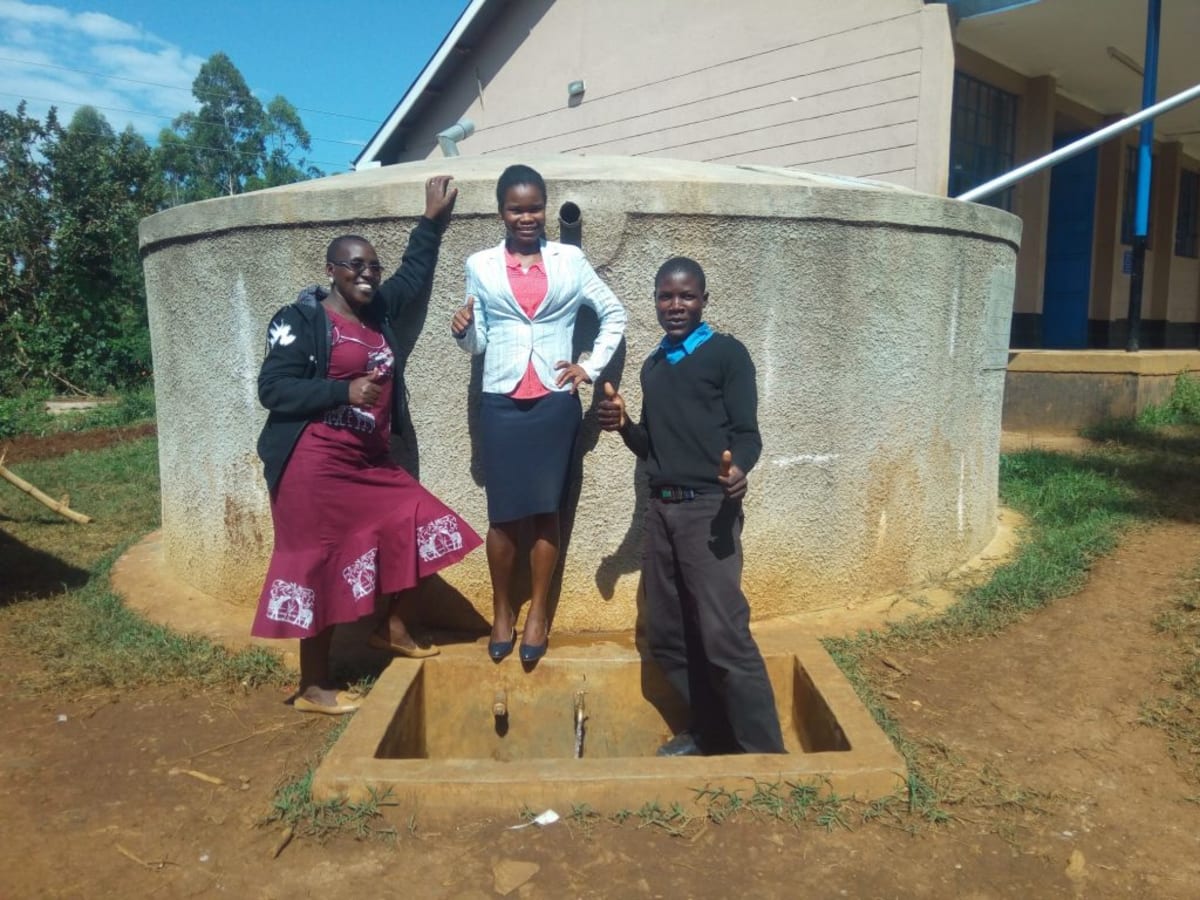El'longo Secondary School is located in El'longo Village of Vihiga County, Kenya. It is a place of study for 188 students. The school also employs nine teachers and three support staff.
A normal day for students attending El'longo Secondary School begins at 6:30am. It all starts with the long walk to school: They grab their books and an empty water container. This is because students are expected to arrive with their own water which will be used for cleaning classrooms, cooking school lunch, and drinking.
The search for water on the way to school often makes students late for their morning study hall.
Water
Not every student can bear the weight a 20-liter jerrycan full of water, some only manage 10 liters. The school doesn't have any storage, so water is kept in these jerrycans until it's used up. Many students drain their containers of water and declare a need to go back into the community in search of more; all as an excuse to get out of class.
While teachers find it impossible to deny a student more water, they are afraid that the search for water is a serious reason for the high rate of teen pregnancies at their school.
Not only does the search for water cause students to miss class, but it also gets them sick. Teachers recommend that students walk to a protected spring to fill their containers, but many opt for more convenient dirty water source on their way to school. The protected spring is both too far and too busy for these students.
Safe water scarcity is a daily issue that causes students and staff to suffer from diarrhea and stomachaches.
Sanitation
The school does not have enough sanitation facilities of its own. There are a few latrines for girls, but the boys have to walk to the neighboring primary school to share with their younger peers. Teachers even need to cross over to the primary school to share latrines.
The deputy principal said, "It is an embarrassing situation to share sanitation facilities. The situation is worse when the boys of both secondary and primary sections are lined up for latrines. And keeping these facilities clean is impossible because they're being used way too much. Sharing the facilities makes it hard to know who is really responsible."
There is only one hand-washing station shared among teachers and students.
Here's what we're going to do about it:
Training
Training will be held for two days. The facilitator will use PHAST (participatory hygiene and sanitation transformation), ABCD (asset-based community development), CTC (child to child), lectures, group discussions, and handouts to teach health topics and ways to promote good practices within the school. The CTC method will prepare students to lead other students into healthy habits, as well as kickstart a CTC club for the school.
Hand-Washing Stations
The CTC club will oversee the new facilities, such as hand-washing stations, and make sure they are kept clean and in working condition. The two hand-washing stations will be delivered to the school, and the CTC club will fill them with water on a daily basis and make sure there is always a cleaning agent such as soap or ash.
VIP Latrines
Two triple-door latrines will be constructed with local materials that the school will help gather. Three doors will serve the girls while the other three serve the boys. And with a new source of water on school grounds, students and staff should have enough to keep these new latrines clean.
Rainwater Catchment Tank
A 50,000-liter rainwater catchment tank will help alleviate the water crisis at this school. The school will also help gather the needed materials such as sand, rocks, and water from the spring for mixing cement. Once finished, this tank can begin catching rainfall that will be used by the school’s students and staff. Students will no longer be responsible to find enough water to carry to school every day.
We and the school strongly believe that with this assistance, standards will significantly improve. These higher standards will translate to better academic performance!
This project is a part of our shared program with Western Water And Sanitation Forum (WEWASAFO). Our team is pleased to provide the reports for this project (formatted and edited for readability) thanks to the hard work of our friends in Kenya.

 Rainwater Catchment
Rainwater Catchment
 Rehabilitation Project
Rehabilitation Project


































